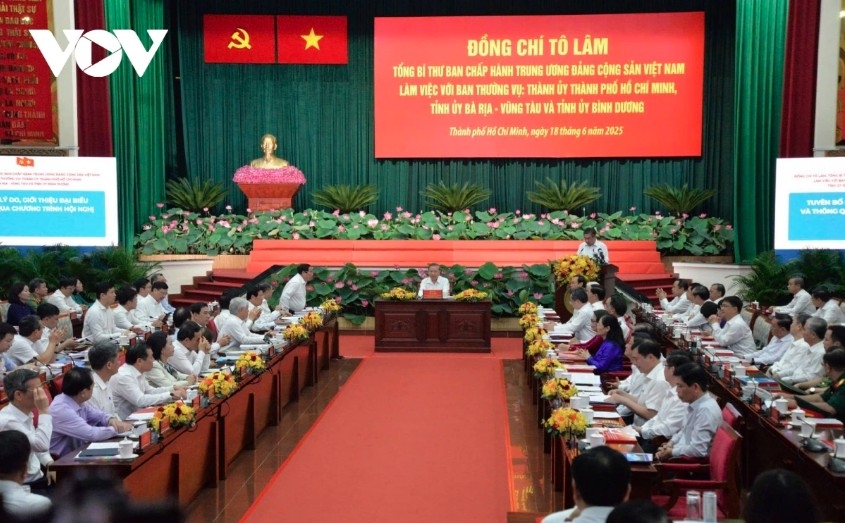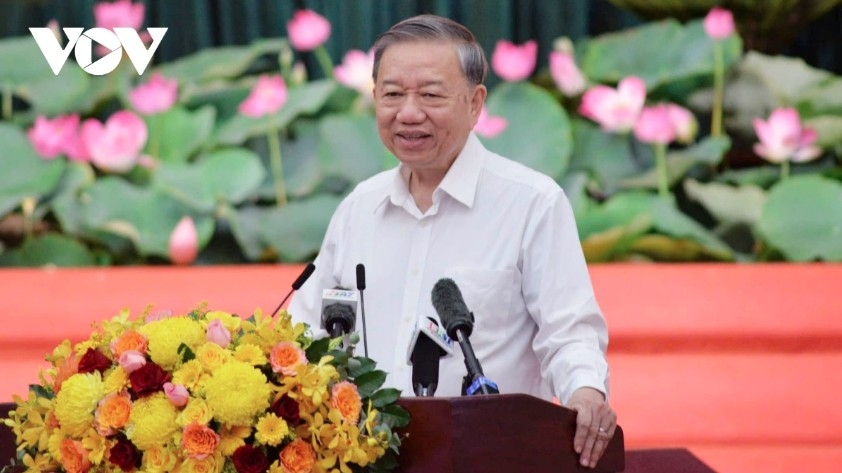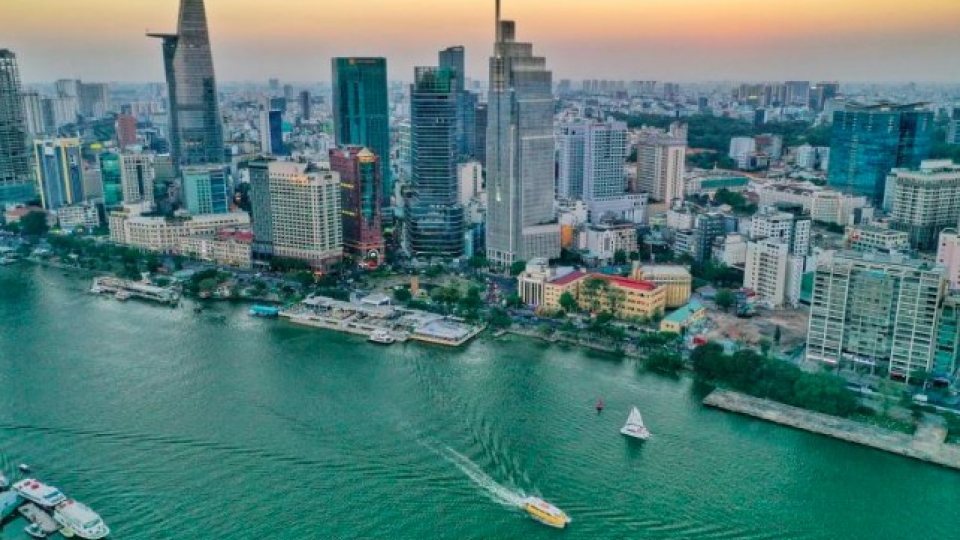Party chief calls for new governance model to steer HCM City as international megacity
VOV.VN - Party General Secretary To Lam has urged Ho Chi Minh City to swiftly develop a new governance model capable of managing an expanded urban region following its merger with Binh Duong and Ba Ria-Vung Tau provinces, positioning the city for global competition.

Party General Secretary To Lam chaired a working session in Ho Chi Minh City on June 18 with the Party Standing Committees of Ho Chi Minh City, and southern provinces of Ba Ria–Vung Tau, and Binh Duong.
The meeting reviewed socio-economic performance, Party-building efforts over the past six months, and the implementation of Central-level resolutions and conclusions across the three localities.
In his concluding remarks, the General Secretary reaffirmed that merging Ho Chi Minh City with the two dynamic provinces of Binh Duong and Ba Ria–Vung Tau has opened a new chapter for the southern economic engine. The expanded city is no longer just Vietnam’s largest economic, cultural, and financial center, but is now set to become one of Southeast Asia’s most concentrated zones of urban development, industry, finance, and seaports.
While praising the achievements of all three localities, he noted that structural bottlenecks remain. Growth is not yet sustainable, investment outcomes fall short of potential, and international competitiveness is still limited.
To overcome these issues, the General Secretary called for urgent development of a governance model suited to a tri-polar urban region. Under this approach, the city’s central administration would focus on strategy, planning, and coordination, while areas like Thu Thiem, Thu Duc, Di An, Ben Cat, Ba Ria, and Vung Tau should be empowered to operate with greater autonomy and initiative. Data should be centralized, but decisions made as close to the public as possible.

He laid stress on the need for lean yet responsive governance at the grassroots level, especially commune-level authorities. These units must closely monitor performance, respond to citizens and businesses, and improve real-time responsiveness and accountability.
The General Secretary stressed that the new Ho Chi Minh City must exemplify digital era governance, combining transparency, efficiency and a strong focus on innovation. The city must not only manage effectively but also lead development and earn public trust.
He called for a modern, integrated governance system powered by digital transformation across public administration, infrastructure management, and service delivery, all aimed at improving support for residents and businesses.
Ho Chi Minh City was also urged to restructure its economy, adopt new growth models, and shift toward a knowledge-based, high-value, competitive economy. He called for a regional development plan guided by multi-centered, integrated, and highly connected thinking, moving far beyond the limits of traditional urban models.
He further emphasized the importance of building a strong ecosystem for science, technology, innovation, and private enterprise, not through slogans, but through concrete actions.
Lastly, the Party chief underscored that preparations for the upcoming Party Congress must become a joint effort to shape a bold new strategy-one worthy of a leading, innovative, and modern metropolis.



